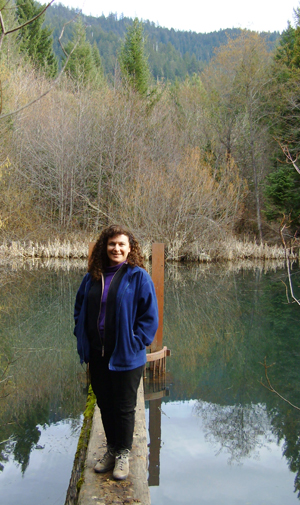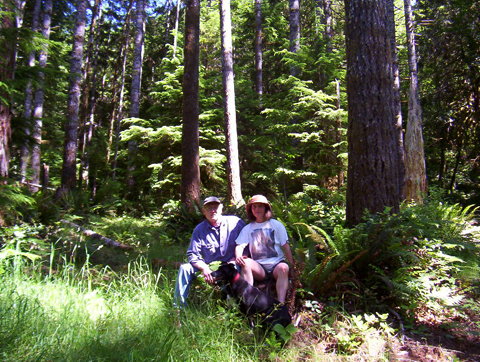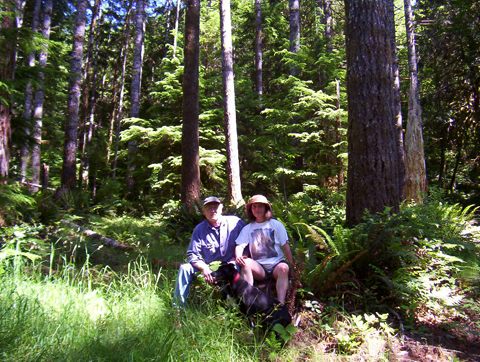
Lisa Arkin, Beyond Toxics Exec. Director
“Timber’s Cover-Up” tells the forest story and offers solutions … in 4 minutes
Recently, I had lunch in the employee cafeteria of an international corporation based in Lane County. I was somewhat amazed, but pleased, to see efforts to celebrate Farm Worker Appreciation Week. There were large colorful posters of farm workers and glossy brochures. Their handouts urged the reader to consider how their food is grown, who harvests their food and if workers are treated fairly.
In other words, consumers were being asked to evaluate the ethics of our food system and the impact our choices have on our planet and the people who work in the fields.
Why aren’t we demanding the same information about the wood products we buy?
That was a question posed during the 2016 Public Interest Environmental Law Conference session, “Models of Biodiverse Forestry as Alternatives to Oregon’s Industrial Timber Practices.” Beyond Toxics sponsored this panel featuring three innovative Oregon foresters. They laid out solutions to a host of vexing environmental and economic problems exacerbated by Oregon’s conventional model of industrial forestry.
The owners of Zena Forest, Hyla Woods and Shady Creek Forest Resources described a forest management and timber harvest model that parallels the organic foods movement. They challenged the audience to demand wood products that are produced without environmental harm.
Just as consumer demand for environmental benefits has created growth in the organic food movement, shouldn’t we each be asking similar questions about timber harvesting such as,
“Did this 4x4 come from a clear-cut that’s been sprayed with chemicals? Is it FSC certified?”
“Is my baby crawling on beautiful oak wood flooring harvested locally from a responsibly managed forest or chemically-treated laminate flooring from China?”
These experiences grew into the idea to create a short film that challenges the greenwashing ad campaigns by the conventional industry and offers a vision for a modern forest management model. And we did it in under 4 minutes!
Beyond Toxics’ new, short film, “Timber’s Cover-Up” uses aerial photography to look far above and deep within industrial forests “Timber’s Cover-Up” reveals how forest ecosystems are interrupted and destroyed by conventional industrial forestry. It debunks the myth that tree plantation farming is “sustainable reforestation.”

This is what a resilient forest looks like. Shady Creek Forest Resources owners, Dave Eisler and Sarah Sheffield.
The film goes on to explore the question “what is a healthy, resilient working forest?” You’ll get an introduction to innovative foresters like Dave Eisler of Shady Creek Forest. Dave is building a forest economy favoring selective logging of Oregon’s native hardwood tree species mixed with Douglas fir. Shady Creek Forest never sprays herbicides by air or on the ground, never clear cuts and thereby recognizes the value of Oregon’s native hardwoods as marketable timber.
Forests managed responsibly, known as “Resilient Forests,” allows for ecological values to be embedded within an economic model. We need a different economic model now. The Oregon Forest Practices Act fails to require timber management that meets the needs of a changing climate future. Oregonians should not let these short-sighted forest policies continue.
Forests can be managed intentionally for native biodiversity, stream protection and neighboring community safety. We must demand environmental benefits from forest practices.
We need Resilient Forests. “Timber’s Cover-Up” produced by Beyond Toxics, proposes that Oregon become an industry leader. We must create consumer demand business incentives for resilient forestry.






